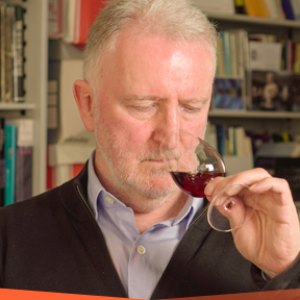
Wednesday May 28, 2025
Barry Smith - The philosophy of wine
Barry Smith, Director of the Institute of Philosophy at the School of Advanced Study, talks about the philosophy of wine.
About Barry Smith
"I'm a professor of philosophy and Director of the Institute of Philosophy at the University of London School of Advanced Study. I'm a philosopher of mind and language, and I'm interested in how these systems help put us in touch with the world around us and with ourselves, and I'm especially interested in the senses and our sense of taste and smell."
The power of smell
When we understand that our knowledge of the world first comes to us through our senses, we tend to think of the senses of sight and hearing, perhaps touch, as the higher senses – the ones that are most important and relied on. Taste and smell tend to receive much less attention in philosophy. People tend to think of the sense of smell as relatively unimportant, and many people will imagine that the experience of smelling is just a mere modification of our consciousness, as philosopher Bill Lycan notes; they think it’s not telling us anything. Yet the sense of smell is very important to connect us to the world around us. Our sense of smell is there to tell us about smoke, or fire, or danger, or even the presence of food. A sense of smell is often used to give us a sense of somebody’s emotional state. We can smell fear, although that’s very unconsciously processed. The sense of smell is also used in tasting food. What we call “tasting” is not mainly coming from the tongue. The tongue just gives us salt, sweet, sour, bitter, perhaps savoury. But think of all the flavours we can taste: mango, melon, strawberry, pineapple. We don’t have pineapple receptors on our tongues. All of that is coming from smell.
Key Points
• Smell and taste are often considered less important, but these senses are key to connecting us to the world around us.
• Wine tasting opens up philosophical questions about subjectivity and objectivity. Is taste a matter of subjective experience? Or can we perceive the objective quality of a wine?
• Through prompts and guiding questions, we can use our senses to discover not just what we like, but why we like it.
No comments yet. Be the first to say something!